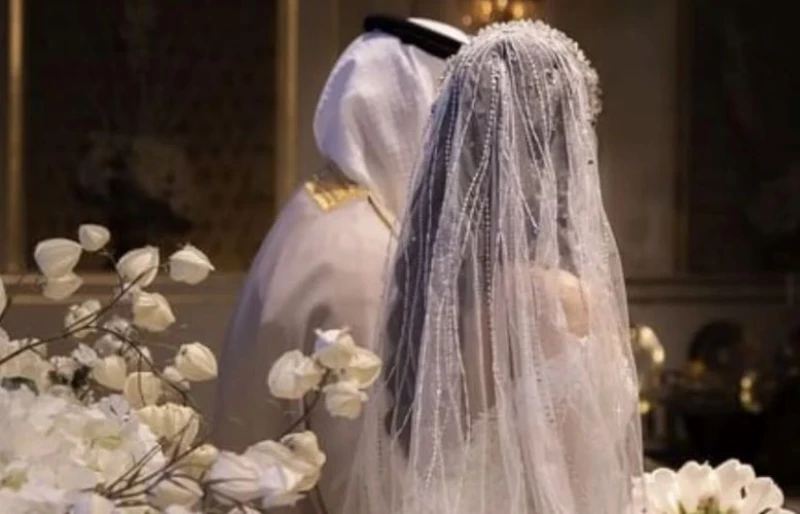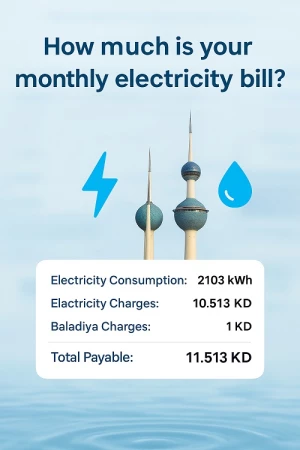Latest News
- Expats Alert: PACI Just Changed The Rules For Updating Your Addr...
- Best Pizza In Kuwait: Top Brands And What To Order
- Best Budget-Friendly Chalets & Villas In Kuwait For Weekend Geta...
- Why Electricity Bills Are Rising In Kuwait & Smart Ways Expats C...
- App Store Optimization: Why It’s Becoming A Core Part Of SEO Str...
- Best Shower Filters In Kuwait For Hair Fall And Skin Protection
- Exness Sets A New Standard Of Consistency In The Trading Industr...
- Instant Withdrawals In Trading – A Game Changer For Traders In K...
- Best Abaya Shop In Kuwait: Editorial Review Of Abay.com
- IPhone 17 In Kuwait: Prices, Colors, Specs & Where To Buy
- Best Drinking Water Filter For Home In Kuwait
- Avoid Common Qatar E-visa Application Mistakes. Learn The Top 5...
Will Citizenship Withdrawal Under Article 8 Shift Kuwaiti Marriage Trends?
The recent revocation of Article 8 from Kuwait's nationality law has sparked discussions about its potential effects on marriage patterns within Kuwaiti society.
This article examines the implications of this legislative change, particularly concerning the marital choices of Kuwaiti men and the status of Kuwaiti women.
Understanding Article 8 and Its Revocation
Article 8 previously facilitated the naturalization of foreign spouses, allowing them to acquire Kuwaiti citizenship under certain conditions. Its repeal aims to address issues related to fraudulent naturalizations and the preservation of national identity. Consequently, the government has revoked citizenships granted under this article, affecting numerous individuals.
Source: Arab Times
Current Marriage Statistics in Kuwait
As of December 2024, data from the Public Authority for Civil Information (PACI) indicates:
- Unmarried Kuwaiti Women Over 29: 67,794 (25% of the population)
- Married Kuwaiti Women: 267,014
- Kuwaiti Men Married to Non-Kuwaiti Women: 30,292
- Kuwaiti Women Married to Foreigners: 19,530 (18,006 married to Arab nationals)
- Kuwaiti Women Married to Kuwaiti Men: 247,484
These figures highlight a significant number of unmarried Kuwaiti women and a notable trend of Kuwaiti men marrying non-Kuwaiti women.
Perspectives on the Impact of Article 8's Withdrawal
Manal Al-Kandari (Women's Rights Activist)
Believes that the withdrawal of citizenship under Article 8 will make Kuwaiti men reconsider marrying non-Kuwaiti women. She attributes this trend to the high costs associated with marrying Kuwaiti women, including extravagant spending and stringent conditions set by some families.
Sheikha Al-Julaibi (Lawyer & Women’s Rights Activist)
Contends that marriage decisions are primarily influenced by personal fate and destiny. She emphasizes that the withdrawal of citizenship under Article 8 is not the main factor affecting a Kuwaiti man's choice of spouse. Instead, she points to state-provided benefits, such as increased marriage loans and housing priorities, as more significant incentives for marrying within the Kuwaiti community.
Dr. Ahmed Salama (Professor of Family Psychology)
Suggests that the revocation of Article 8 will likely reduce marriages between Kuwaiti citizens and non-Kuwaitis. He notes that some foreigners have historically married Kuwaitis primarily to obtain citizenship, leading to marriages based on material interests rather than genuine relationships. Dr. Salama also highlights the challenges posed by high dowries and exaggerated marriage requirements, urging Kuwaiti families to adopt a more moderate approach.
Conclusion
The repeal of Article 8 is anticipated to influence marriage dynamics in Kuwait. While it may deter marriages between Kuwaiti men and non-Kuwaiti women seeking citizenship, other factors such as cultural expectations, financial considerations, and personal preferences will continue to play pivotal roles in marital decisions. Addressing the high number of unmarried Kuwaiti women requires a multifaceted approach, including societal shifts towards more moderate marriage expectations and enhanced support for local unions.





